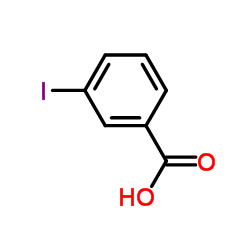[The mechanisms of elimination of o-125I-benzoate in rabbits].
R Richter, A Láznícková, M Láznícek, J Kvĕtina
文献索引:Cesk. Farm. 39(1) , 11-4, (1990)
全文:HTML全文
摘要
An analysis of the mechanisms of elimination of o-125I-benzoate in the rabbit kidney on the basis of the inhibition of the secretionary transport by probenecid has shown that o-125I-benzoate is eliminated in the kidneys not only by glomerular filtration but by tubular secretion as well. An effect on the total amount of the drug excreted in the urine is exerted by tubular resorption (apparently by the process of passive diffusion), which exceeds tubular secretion. A comparison of the chromatograms of the plasma and urine before and after the competitive inhibition of the tubular active transport by probenecid revealed a higher share of o-125I-benzylglucuronide in the urine in the case of inhibition. The results suggested a partial share of the kidneys in total biotransformation of o-125I-benzoate. Excretion of the original drug and metabolites in the bile forms a negligible share (less than 1%) of total clearance in rabbits.
相关化合物
| 结构式 | 名称/CAS号 | 分子式 | 全部文献 |
|---|---|---|---|
 |
邻碘苯甲酸
CAS:88-67-5 |
C7H5IO2 |
|
Polyamine Triglycerides: Synthesis and Study of Their Potent...
2015-07-22 [J. Agric. Food Chem. 63 , 6422-9, (2015)] |
|
Structure and function of L-lactate dehydrogenases from ther...
1983-07-01 [Hoppe. Seylers. Z. Physiol. Chem. 364(7) , 893-909, (1983)] |
|
One-pot multicomponent synthesis of indoles from 2-iodobenzo...
2008-01-01 [Angew. Chem. Int. Ed. Engl. 47(2) , 350-2, (2008)] |
|
[The efect of ionizing radiation and fasting on the excretio...
1983-01-01 [Sb. Ved. Pr. Lek. Fak. Karlovy Univerzity Hradci Kralove. Suppl. 26(3) , 201-15, (1983)] |
|
[The effect of various doses of ionizing radiation on the ex...
1979-01-01 [Sb. Ved. Pr. Lek. Fak. Karlovy Univerzity Hradci Kralove. Suppl. 22(2) , 287-98, (1979)] |